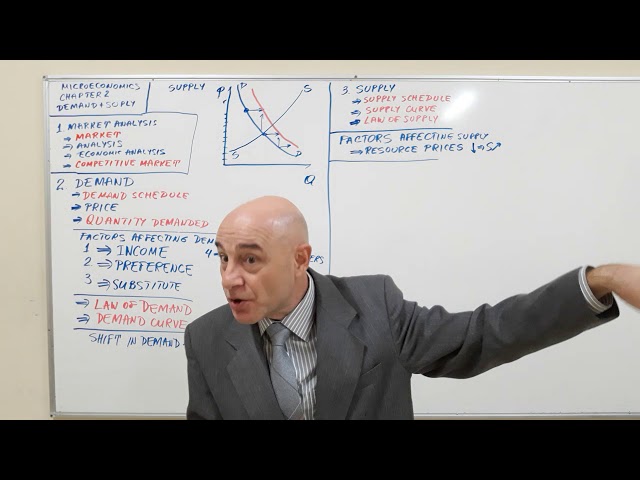How to Start a Public Speaking Career?
To start a public speaking career, develop your speaking skills and gain experience through practicing, joining a Toastmasters club, and seeking out opportunities to speak at local events, organizations, and conferences. Public speaking is a valuable skill that can open doors to various personal and professional opportunities.
Whether you aspire to become a motivational speaker, industry expert, or simply want to improve your communication skills, starting a public speaking career begins with building a solid foundation. This involves honing your speaking abilities through practice, seeking feedback, and continuously improving your presentation techniques.
Additionally, joining a Toastmasters club can provide a supportive community and opportunities for growth. As your confidence and experience grow, it’s important to actively seek speaking engagements at local events, organizations, and conferences to showcase your expertise and expand your reach. By taking these steps, you can pave the way for a successful public speaking career.
Discover Your Passion And Expertise
Embark on a fulfilling public speaking career by uncovering your passion and honing your expertise. Learn how to start your journey towards becoming a confident and effective speaker in this comprehensive guide.
Identify your areas of interest and knowledge:
- Reflect on topics or subjects that genuinely excite you and make you feel passionate.
- Consider your hobbies, past experiences, or areas of study where you have accumulated extensive knowledge.
- Think about the kind of content you enjoy consuming or discussing.
Determine your unique perspective or expertise within those areas:
- Analyze what sets you apart from others who may be interested in the same topics.
- Identify your personal experiences, insights, or particular areas of expertise that can offer a fresh perspective.
- Consider how your unique viewpoint can add value to the audience and set you apart as a speaker.
Develop a personal brand that aligns with your passion and expertise:
- Craft a clear and compelling personal brand that showcases your passion and expertise to potential speaking opportunities.
- Showcase your expertise through your online presence, such as a professional website, blog, or social media profiles.
- Use consistent branding elements, such as a logo, colors, and fonts, to create a recognizable identity.
By following these steps, you can set yourself up for success in starting a public speaking career. Embrace your passion, discover your unique perspective, and develop a personal brand that reflects your expertise. With dedication and persistence, you can thrive as a public speaker and make a significant impact on your audience.
Build Confidence And Communication Skills
Develop your public speaking career by building confidence and honing communication skills. Astonish audiences with your powerful delivery and captivating presence.
Public speaking can be a daunting endeavor for many people. However, with the right strategies and practice, you can overcome your fears and develop strong confidence and communication skills to excel in this field. This section will focus on three key aspects: overcoming fear and gaining confidence in public speaking, practicing effective communication techniques, and developing strong body language and vocal delivery skills.
Overcoming Fear And Gaining Confidence In Public Speaking:
- Understand and address your fears: Identify the specific reasons behind your fear of public speaking, whether it’s the fear of judgment, making mistakes, or forgetting your lines. Once you pinpoint your fears, you can work on addressing them directly.
- Visualize success: Imagine yourself delivering a successful speech, captivating your audience, and receiving applause. Visualization techniques can help boost your confidence and reduce anxiety before speaking engagements.
- Start with small audiences: Begin by speaking in front of small groups or friends and family. Gradually increase the size of your audience as your confidence grows.
- Practice, practice, practice: Practice your speech as many times as possible to familiarize yourself with the content and gain confidence in your delivery. Rehearsing in front of a mirror or recording yourself can help you identify areas for improvement.
Practicing Effective Communication Techniques:
- Know your audience: Understand the needs, interests, and expectations of your audience. This knowledge will help you tailor your speech to engage and resonate with them.
- Structure your speech: Plan and organize your speech with a clear introduction, body, and conclusion. Use concise and impactful language to convey your message effectively.
- Use storytelling techniques: Incorporate relevant stories, anecdotes, and examples to make your speech memorable and engaging. Stories can captivate your audience and help convey complex ideas in a relatable manner.
- Use visuals and props: Utilize visual aids, such as slides or props, to enhance your speech and provide visual representation of your ideas.
- Active listening: Engage in active listening during question-and-answer sessions or while interacting with your audience. Show genuine interest and respond thoughtfully to their queries or comments.
Developing Strong Body Language And Vocal Delivery Skills:
- Maintain eye contact: Establish eye contact with different individuals across your audience to create a connection and convey confidence. Avoid constantly looking down at your notes or fidgeting.
- Use gestures and body movements: Incorporate appropriate gestures and body movements to convey your message effectively. Strategic movements can enhance your speech and engage your audience.
- Enhance vocal variety: Vary your pitch, tone, and pace to add interest and emphasize key points. Practice speaking clearly and enunciating words to ensure your message is easily understood.
- Use pauses strategically: Embrace pauses during your speech to allow your audience to absorb information, emphasize important ideas, or build suspense.
- Seek feedback: Request feedback from trusted individuals or join public speaking groups where you can receive constructive criticism. Continuously seeking improvement will help you refine your skills and boost your confidence.
By implementing these strategies, you can gradually build confidence, refine your communication skills, and embark on a successful public speaking career. Remember, practice and perseverance are key to honing these skills and becoming a compelling speaker. So, don’t shy away from opportunities to speak publicly and watch yourself grow in confidence and influence.
Create Your Speaker’S Portfolio
Start your speaking career on the right track by creating a powerful speaker’s portfolio. Showcase your expertise, experience, and unique speaking style to impress potential clients and secure speaking opportunities. Let your portfolio speak volumes about your skills and make a lasting impression in the public speaking industry.
Crafting An Engaging Speaker Bio:
- Your speaker bio is an essential part of your portfolio as it introduces you to potential clients and event organizers. It should be crafted in a way that showcases your expertise and highlights your unique selling points. Here are some tips for creating an engaging speaker bio:
- Start with a compelling opening sentence that captures the reader’s attention and provides a glimpse into your expertise or experience.
- Keep it concise and focused. Aim for a bio of around 100-200 words to maintain reader interest and avoid information overload.
- Highlight your relevant qualifications, such as academic degrees, certifications, or professional affiliations. Mention any awards or accolades that demonstrate your expertise and credibility.
- Share your speaking niche or specialization, showcasing the topics you are passionate about and well-versed in. This helps potential clients determine if you are a good fit for their event.
- Include a personal touch by sharing a short anecdote or story that showcases your unique perspective or journey as a speaker. This helps create a connection with the reader and makes your bio more memorable.
- End with a strong call-to-action, inviting readers to reach out to you for speaking opportunities. Provide contact information or links to your website and social media profiles.
Collecting Testimonials And Endorsements:
- Testimonials and endorsements play a crucial role in building trust and credibility as a speaker. Including positive feedback from previous clients or audience members can greatly enhance your speaker portfolio. Here’s how to collect and utilize testimonials and endorsements effectively:
- Reach out to past clients, event organizers, and audience members and request feedback on your performance. Ask them to share specific details about how your presentation impacted them or what they found valuable.
- Select the most compelling testimonials that highlight different aspects of your speaking skills, such as your ability to engage the audience, deliver practical insights, or inspire action.
- Quote the testimonials directly, attributing them to the person who provided the feedback. This adds authenticity and credibility to your portfolio.
- Request permission to include the name, title, and organization of the person providing the testimonial. Including their information helps potential clients identify with the testimonial source and adds further credibility.
- If possible, include testimonials that are relevant to your target audience or industry. This helps potential clients see the direct value you can bring to their specific event or organization.
Showcasing Past Speaking Engagements And Accomplishments:
- Displaying your past speaking engagements and accomplishments is a powerful way to demonstrate your experience and expertise as a speaker. Here’s how to effectively showcase this information in your speaker’s portfolio:
- Create a separate section in your portfolio dedicated to showcasing your previous speaking engagements. Include the event name, date, location, and the topic you presented on.
- Include high-quality photos or videos from your past speaking engagements to provide visual evidence of your stage presence and audience engagement.
- Highlight any notable achievements or milestones you have achieved as a speaker. This can include media coverage, significant events or conferences you have spoken at, or any unique accomplishments related to your speaking career.
- If you have presented at industry-specific events or have collaborated with well-known organizations, be sure to mention them. This can help establish your reputation and expertise within your niche.
- Provide links to any articles, blog posts, or interviews where you have been featured or mentioned as a speaker. This adds further credibility and showcases your visibility in the industry.
Remember, your speaker’s portfolio should be a comprehensive representation of your expertise and experience. Craft an engaging speaker bio, collect testimonials and endorsements, and showcase your past speaking engagements and accomplishments to leave a lasting impression on potential clients and event organizers.
Networking And Relationship Building
To start a public speaking career, networking and relationship building are crucial. Connect with industry professionals, attend events, and join relevant organizations to establish valuable connections. Building relationships will not only provide opportunities for speaking engagements but also help in growing your reputation and expanding your network.
Building a strong network and cultivating relationships is crucial for success in the public speaking industry. By connecting with like-minded individuals and industry experts, you not only expand your knowledge but also increase your chances of getting valuable speaking opportunities.
Here are a few effective ways to enhance your networking and relationship-building skills:
Joining Professional Speaking Associations And Groups:
- Joining professional speaking associations and groups allows you to connect with experienced speakers and industry professionals who can offer valuable insights and support.
- Engaging in discussions, attending workshops and events organized by these associations provide opportunities to learn from experts and showcase your expertise.
- Enhancing your network can lead to potential partnerships, referrals, and invitations to speak at industry conferences and events.
Attending Conferences And Events To Meet Industry Experts:
- Conferences and industry events are great platforms to connect with industry experts and influential individuals in the speaking industry.
- Engage in conversations, ask questions, and contribute to discussions to establish meaningful relationships.
- Attending workshops and presentations by established speakers can offer valuable insights and help you grow as a speaker.
Leveraging Social Media Platforms For Networking Opportunities:
- Social media platforms provide an excellent avenue for networking and building relationships with industry professionals.
- Actively participate in relevant online communities, groups, and forums to connect with speakers, organizers, and event planners.
- Engage with their content, share valuable insights, and offer support to establish yourself as a knowledgeable and reliable professional.
- Utilize LinkedIn to connect with professionals in the speaking industry and join relevant groups to expand your network.
By investing time and effort in networking and relationship building, you can establish yourself as a credible and connected public speaker. Building strong connections enables you to tap into a vast pool of opportunities, exchange ideas, and grow both personally and professionally.
So start expanding your network today and watch your speaking career flourish.
Crafting And Delivering Engaging Presentations
Discover the essential steps to kickstart your public speaking career with the art of crafting and delivering engaging presentations. Master the skills needed to captivate your audience and leave a lasting impact through effective communication.
Crafting and delivering engaging presentations is crucial for successfully starting a public speaking career. By researching and gathering relevant information, structuring your presentations effectively, and utilizing storytelling techniques, you can captivate your audience and leave a lasting impression. Follow these strategies to enhance your public speaking skills:
Researching And Gathering Relevant Information For Your Audience
To create a compelling presentation, it is essential to thoroughly research and gather relevant information that caters to your audience’s interests and needs. Here’s how you can do it:
- Identify your target audience: Understand your listeners’ demographics, interests, and knowledge level to tailor your content accordingly.
- Conduct in-depth research: Dive into reliable sources such as books, articles, and reputable websites to gather valuable and up-to-date information.
- Use surveys or interviews: Gain insights into your audience’s preferences and expectations by conducting surveys or interviewing individuals who possess relevant knowledge.
- Analyze industry trends: Stay updated with the latest trends, statistics, and advancements in your field of interest to provide valuable and timely information.
Structuring Your Presentations For Maximum Impact
The structure of your presentation plays a pivotal role in delivering your message effectively. Consider the following points to structure your presentations for maximum impact:
- Create a strong opening: Begin with a catchy introduction that grabs your audience’s attention, such as a compelling quote, an interesting fact, or a thought-provoking question.
- Organize your content logically: Divide your presentation into clear sections or main points to ensure a coherent flow of information. Use subheadings or bullet points to make it easier for your audience to follow along.
- Incorporate visuals: Enhance your presentation with relevant images, graphs, or charts to convey information more effectively and keep your audience engaged.
- Include interactive elements: Encourage audience participation through activities, polls, or Q&A sessions to create a dynamic and engaging experience.
- End with a strong Summarize your key points and leave your audience with a memorable closing statement or call to action.
Utilizing Storytelling Techniques To Captivate Your Audience
Storytelling is a powerful tool that can captivate and engage your audience on an emotional level. Employ the following techniques to incorporate storytelling into your presentations:
- Start with a compelling anecdote: Grab your audience’s attention by sharing a personal or relatable story that sets the stage for your presentation topic.
- Use vivid and descriptive language: Paint a mental picture by employing descriptive words and sensory details that help your audience visualize the story.
- Incorporate characters and conflict: Introduce relatable characters and create a narrative arc with conflicts or challenges to maintain your audience’s interest.
- Express emotions: Convey emotions through your storytelling, as it helps establish a connection with your audience and make your message resonate.
- Keep it concise and relevant: Ensure that your stories align with your main message, adding value and relevance to your presentation.
Crafting and delivering engaging presentations requires thorough research, effective structuring, and the skillful use of storytelling techniques. By following these tips, you can successfully captivate your audience and kick-start your public speaking career. Embrace your creative flair, be confident, and deliver presentations that leave a lasting impact.

Credit: www.amazon.com
Marketing Yourself As A Public Speaker
Learn how to kick-start your public speaking career by marketing yourself effectively. Discover the essential tips and strategies to stand out from the crowd and make a lasting impact as a public speaker.
Creating A Professional Website With A Speaking Page
To market yourself as a public speaker effectively, having a professional website is essential. This platform will serve as your online presence and help you showcase your expertise. Here’s how you can create a compelling website with a dedicated speaking page:
- Choose a clean and user-friendly design for your website that aligns with your personal brand.
- Clearly mention your speaking experience, areas of expertise, and the types of events you are available for on your speaking page.
- Include high-quality photos and videos of your past speaking engagements to provide a glimpse of your stage presence and captivate potential clients.
- Showcase testimonials from previous clients or event organizers to build credibility and show that you deliver value as a speaker.
- Provide a contact form or a booking inquiry form on your speaking page to make it easy for interested parties to reach out to you.
Having a professional website with a dedicated speaking page will allow you to establish yourself as a reputable public speaker and make it easier for event organizers to find and consider you for speaking opportunities.
Utilizing Social Media To Promote Your Speaking Career
In today’s digital age, social media is a powerful tool for marketing yourself as a public speaker. Take advantage of various platforms to expand your reach and promote your speaking career effectively:
- Identify the social media platforms that align with your target audience and focus on those. Popular choices include LinkedIn, Twitter, Facebook, and Instagram.
- Create professional profiles on these platforms, ensuring consistency in branding and messaging.
- Share your speaking engagements, insights, and industry-related content regularly to demonstrate your expertise and engage with your followers.
- Utilize relevant hashtags and tag event organizers, industry influencers, and professional organizations to increase your visibility and reach a broader audience.
- Engage with your audience by responding to comments and messages promptly, fostering connections, and building relationships with potential clients.
By leveraging the power of social media, you can amplify your public speaking career, build a strong online presence, and attract speaking opportunities that align with your expertise and interests.
Collaborating With Event Organizers And Industry Influencers
Collaborating with event organizers and industry influencers can significantly boost your public speaking career. By establishing mutually beneficial relationships, you can tap into their networks and gain exposure to wider audiences. Here are some strategies for effective collaboration:
- Engage with event organizers by attending relevant conferences, seminars, or industry-specific events. Network with organizers, share your expertise, and express your interest in speaking opportunities.
- Offer to contribute as a guest speaker or panelist at events where your expertise can add value. This will not only enhance your visibility but also position you as an authority in your field.
- Leverage industry influencers by seeking opportunities to collaborate on projects, such as hosting webinars or contributing to their blogs or podcasts. This allows you to tap into their existing audience and attract new followers.
- Participate in industry-specific forums or online communities. Share your knowledge and insights, answer questions, and connect with others who may be interested in your expertise as a speaker.
By building relationships with event organizers and industry influencers, you can unlock new speaking opportunities, access larger audiences, and establish yourself as a reputable and sought-after public speaker.
Remember, creating a professional website with a speaking page, utilizing social media to promote your career, and collaborating with event organizers and industry influencers are essential steps to effectively market yourself as a public speaker. Embrace these strategies, and watch your speaking career soar.
Securing Speaking Engagements
Learn how to kickstart your public speaking career by securing speaking engagements. Discover effective strategies, tips, and tricks to attract event organizers and leave a lasting impression on your audience. Gain the confidence and visibility you need to succeed as a professional speaker.
Approaching Event Organizers And Submitting Proposals:
- Research and identify events that align with your expertise and target audience.
- Craft a compelling pitch or proposal highlighting your unique value proposition.
- Start by introducing yourself and explaining why you are a good fit for the event.
- Clearly outline the topics you can speak on and the benefits attendees will gain.
- Share any previous speaking experience, credentials, or testimonials to establish credibility.
- Include a brief outline of your proposed talk or workshop, showcasing the value it will provide.
- Provide contact information and encourage event organizers to reach out for more details.
- Follow up after a reasonable period if you don’t receive a response, showing your interest and professionalism in securing the opportunity.
Developing A Pricing Strategy And Negotiating Fees:
- Determine your value based on factors such as experience, expertise, and demand.
- Research industry standards and average speaking fees to get a general idea.
- Consider your time commitment, travel expenses, and potential impact on your other work.
- Create different pricing tiers based on factors like length of the talk, audience size, or additional services offered.
- Be flexible and willing to negotiate, especially for valuable speaking opportunities or long-term partnerships.
- Clearly communicate your fees in proposals or initial conversations to avoid misunderstandings.
- Articulate the value and benefits attendees will receive from your presentation to justify your fees.
- Be prepared to explain your pricing if asked and highlight the unique value you bring compared to other speakers.
Building Long-Term Relationships With Event Organizers:
- Nurture a strong professional network by attending industry conferences and networking events.
- Connect with event organizers on social media platforms to stay informed about future opportunities.
- Remain engaged by sharing relevant content, interacting with their posts, and providing value.
- Offer to provide free advice or assistance to event organizers when appropriate.
- Always follow up with a personalized thank-you message after speaking engagements.
- Seek feedback from the organizers to improve your future presentations.
- Communicate your intention to establish long-term partnerships and collaborate on future events.
- Regularly reach out to event organizers, sharing any updates on your speaking topics or new experiences.
Remember, starting a public speaking career is a process that requires persistence and dedication. By approaching event organizers and submitting well-crafted proposals, developing a pricing strategy, and building lasting relationships with organizers, you can set yourself on the path to a successful and fulfilling career as a public speaker.
Continuous Learning And Improvement
Embark on a public speaking career by embracing continuous learning and improvement. Hone your skills, conquer stage fright, and build confidence to captivate audiences with your powerful voice and impactful message.
To establish a successful public speaking career, continuous learning and improvement are key. The journey to becoming an outstanding speaker involves seeking feedback and constructive criticism, attending workshops, seminars, and courses, and staying updated on industry trends and best practices.
Seeking Feedback And Constructive Criticism:
- Actively seek feedback after each speaking engagement to identify areas for improvement.
- Request constructive criticism from trusted mentors, colleagues, and audience members.
- Embrace feedback as opportunities for growth and use it to refine your speaking skills.
- Implement constructive feedback and make the necessary adjustments to enhance your performance.
Attending Workshops, Seminars, And Courses To Enhance Skills:
- Participate in workshops and seminars that focus on public speaking techniques, presentation skills, and effective communication strategies.
- Enroll in specialized courses that cover various aspects of public speaking, such as storytelling, body language, vocal modulation, and audience engagement.
- Take advantage of online resources and e-learning platforms to gain additional knowledge and insights.
- Network with other aspiring speakers, industry professionals, and experts during these events to exchange ideas and learn from their experiences.
Staying Updated On Industry Trends And Best Practices:
- Follow industry leaders, renowned speakers, and professional organizations to stay abreast of the latest trends in public speaking.
- Engage with industry-specific communities and online forums to discover emerging techniques and innovative approaches.
- Read books, articles, and blogs written by acclaimed speakers to expand your knowledge and learn new strategies.
- Regularly watch and analyze presentations by successful speakers to observe their delivery style, storytelling techniques, and stage presence.
Continuous learning and improvement are ongoing processes in a public speaking career. By seeking feedback, attending relevant events, and staying updated on industry trends, you can continually enhance your skills and become a more confident and impactful speaker. Remember, the journey of improvement is perpetual, and each step taken towards it brings you closer to achieving your public speaking goals.
Overcoming Challenges And Fear Of Public Speaking
Looking to start a public speaking career but struggling with fear and challenges? Learn effective strategies to overcome these obstacles and confidently take the stage with valuable tips and techniques. Enhance your speaking skills and unlock new opportunities for success.
Strategies For Overcoming Nervousness And Anxiety:
- Visualize success: Close your eyes and imagine yourself delivering a successful presentation, engaging with the audience, and receiving positive feedback. Visualization can help alleviate anxiety and boost confidence.
- Practice, practice, practice: The more you practice your speech or presentation, the more confident you will feel. Rehearse in front of a mirror, record yourself, or seek feedback from a trusted friend or colleague.
- Deep breathing exercises: Before your presentation, take a few moments to focus on your breath. Inhale deeply through your nose, hold for a few seconds, and exhale slowly through your mouth. This simple technique can help calm your nerves.
- Positive self-talk: Replace negative thoughts with positive affirmations. Remind yourself that you are knowledgeable and well-prepared. Repeat empowering statements such as “I am confident and capable” to boost your confidence.
- Seek support: Join public speaking clubs or find a mentor who can provide guidance and support. Surround yourself with individuals who understand the challenges of public speaking.
Dealing With Unexpected Challenges During Presentations:
- Embrace flexibility: Be prepared for unexpected situations such as technical glitches, interruptions, or time constraints. Adapt and adjust your presentation accordingly to maintain professionalism.
- Stay calm and composed: Maintain a calm demeanor even when faced with challenging situations. Take a deep breath, pause, and assess the situation before responding.
- Think on your feet: Develop the ability to improvise when needed. Practice thinking quickly and finding alternative solutions on the spot.
- Use humor: Lightening the mood with well-placed humor can help diffuse tension and engage the audience. However, be mindful not to rely solely on humor, as it may detract from your message.
- Focus on the audience: Remember that the presentation is ultimately about the audience, not just yourself. Stay attentive and responsive to their needs, and be prepared to adjust your content or approach as necessary.
Techniques For Handling Difficult Audience Members Or Situations:
- Active listening: When faced with challenging questions or feedback, listen actively and attentively. Show genuine interest and validate the individual’s perspective before responding.
- Empathy and understanding: Try to put yourself in the audience member’s shoes and understand their concerns or frustrations. Respond with empathy and attempt to find common ground or address their underlying needs.
- Use positive body language: Maintain open and welcoming body language, which can help diffuse tension and establish rapport. Make eye contact, smile, and use gestures to convey warmth and approachability.
- Stay professional: Even in the face of challenging situations, maintain your professionalism and avoid becoming defensive or argumentative. Stay focused on the topic and respond respectfully.
- Involve the audience: Encourage interaction and participation from the audience to divert attention from difficult individuals. Engage them in activities or discussions that can shift the focus away from the challenging situation.
Remember, starting a public speaking career may come with challenges, but with the right strategies and mindset, you can overcome nervousness, handle unexpected situations, and navigate difficult audience members or situations successfully. With practice and perseverance, you will gain confidence and excel in your public speaking endeavors.
Building Your Reputation And Brand As A Speaker
Start building your reputation and brand as a speaker by taking proactive steps like honing your skills, delivering high-quality presentations, seeking feedback, and leveraging social media to expand your reach and visibility. With persistence and a strategic approach, you can kick-start your public speaking career and establish yourself as an authority in your field.
Establishing a strong reputation and brand as a public speaker is crucial for success in the industry. By building your credibility and visibility, you can attract more speaking opportunities and connect with a wider audience. Here are some effective strategies to elevate your reputation and brand as a speaker:
Seeking Speaking Opportunities At Prestigious Events:
- Research and identify prestigious events and conferences in your niche that align with your expertise and target audience.
- Submit compelling speaking proposals highlighting your unique value proposition and the topics you can offer.
- Leverage your network to secure recommendations or introductions to event organizers.
- Prepare a captivating speaker bio and portfolio showcasing your experience, accomplishments, and testimonials.
- Deliver engaging and memorable presentations at these events to leave a lasting impression on attendees.
Contributing To Industry Publications And Speaking At Webinars:
- Write guest articles for well-established industry publications to showcase your expertise and demonstrate thought leadership.
- Share practical insights, tips, and case studies to provide value to readers and establish yourself as an authority in your field.
- Collaborate with webinar organizers to deliver informative and engaging sessions.
- Leverage multimedia platforms like podcasts and webcasts to reach a broader audience and expand your network.
Engaging With Your Audience Through Social Media And Email Newsletters:
- Maintain an active presence on social media platforms relevant to your target audience.
- Share valuable content, including tips, resources, and updates related to your niche.
- Interact with followers, respond to comments and messages promptly, and foster meaningful connections.
- Consider hosting live Q&A sessions or AMA (Ask Me Anything) sessions on platforms like Instagram or Twitter to engage with your audience directly.
- Build an email list and send regular newsletters to provide exclusive content, event updates, and relevant resources to your subscribers.
By effectively implementing these strategies, you can enhance your reputation as a speaker, expand your brand reach, and attract exciting opportunities. Remember, consistency, professionalism, and a passion for your topic are key to building a successful public speaking career.
Frequently Asked Questions
How Do I Overcome Stage Fright When Starting A Public Speaking Career?
To overcome stage fright, practice regularly, focus on deep breathing exercises to calm nerves, and visualize a successful performance. Start with smaller audiences and gradually increase the size. Remember, nervousness is common and can be managed with experience and preparation.
What Are Some Effective Techniques To Engage The Audience During A Speech?
Engage the audience by using storytelling, asking questions, and incorporating humor. Use eye contact to connect with individuals and vary your tone and pace to maintain interest. Utilize visual aids like slides or props to enhance your message and make the speech more interactive.
How Can I Find Speaking Opportunities To Kickstart My Public Speaking Career?
Join local Toastmasters clubs, attend networking events, or volunteer to speak at community gatherings. Reach out to organizations, schools, or conferences related to your topic of interest. Utilize online platforms like LinkedIn or SpeakerHub to connect with event organizers seeking speakers.
Networking and consistent effort are key.
What Skills Should I Develop To Become A Successful Public Speaker?
Develop strong communication skills, both verbal and nonverbal. Practice active listening, understand body language, and enhance your storytelling abilities. Work on improving your voice projection, clarity, and using appropriate gestures. Continuously learn and adapt to different speaking environments and audience demographics.
Conclusion
Starting a public speaking career can be a fulfilling and lucrative endeavor. By following the steps outlined in this blog post, you can position yourself for success in this field. First, make sure to identify your niche and target audience.
Next, hone your speaking skills through practice and training. Utilize various resources such as online courses, Toastmasters, and workshops to improve your delivery. Networking is also crucial; attend events and connect with other professionals in the industry. Additionally, leverage technology to showcase your expertise and attract opportunities.
Establishing a strong online presence through a professional website, blog, and social media channels can help you reach a wider audience. Finally, remember to continuously refine your craft and stay updated on industry trends. With determination, perseverance, and the right strategies, you can launch a successful public speaking career and make a lasting impact on your audience.
Start today and see where your speaking journey takes you!





